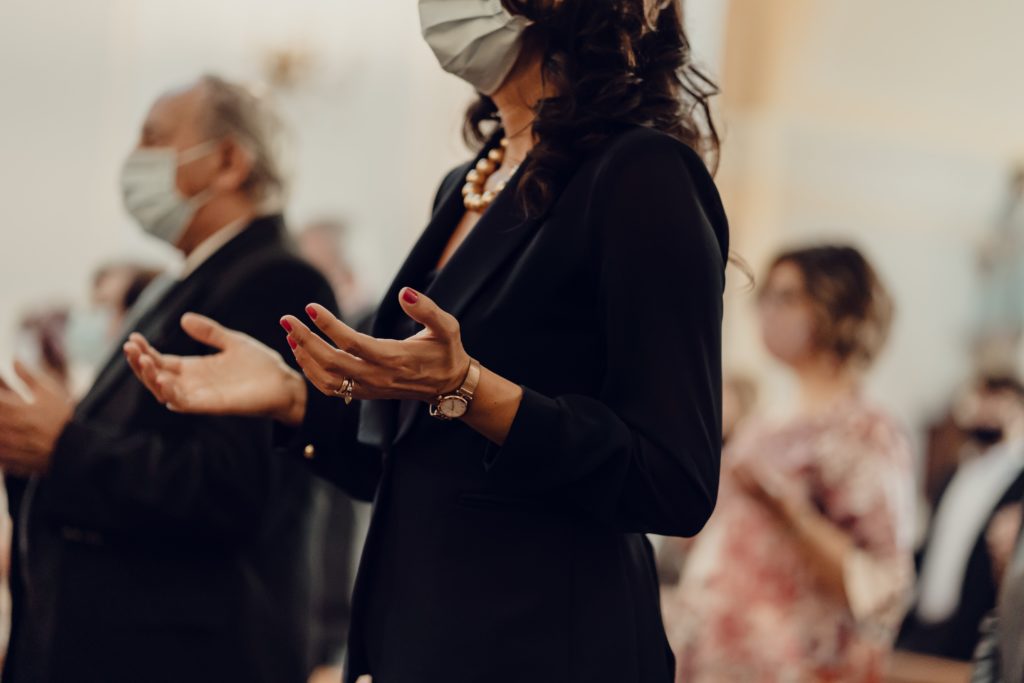Hope to Cope
Co-Missioners,
A few weeks ago we invited a handful of writers to reflect on the current pandemic from their particular areas of interest or expertise. Today we send the first of these. It’s a pastoral letter that Steven Kuhl sent recently to the flock he serves through St. Mark’s Episcopal Church in South Milwaukee. Steve is the part-time rector there. You might well be moved to pass this around in your congregations too, or to share it with your family and friends.
On another note, with workplaces shut across the country, hunger has got to be on the increase in America at the moment. Our friends at Bread for the World would welcome all the help they can get in addressing that. To this end they’ve organized a series of regional webinars next month. We encourage you to sign up for one as another way of loving your neighbor at a time when neighborly love is incumbent on us all, and even the all-but-heartless can see that.
Peace and Joy,
The Crossings Community
To Cope We Need Hope: The Gift of Easter for a Time of Pandemic
A Pastoral Letter by Steven Kuhl

Photo by Gabriella Clare Marino on Unsplash
Dear Christian Friends,
Alleluia! Christ is Risen! The Lord is risen, indeed! Alleluia!
It has now been a month since the “social distancing” measures have been put into place and a month since we have been able to gather for in-person worship. When all this started, we were in the midst of Lent. Now that Easter has come, it appears that we will be remaining in the midst of the Coronavirus Pandemic for some time to come.
Trying to find words to describe the moment we find ourselves in is a major challenge today. Since there is no magic pill that will render the virus impotent, at least not yet, what we need right now, so it seems to me, is the ability to cope. But let’s be honest. It’s impossible to cope without hope.
That’s where Easter comes in. The message of Easter is that there is hope: hope to help us cope. Think about the Gospel for the Second Sunday of Easter, John 20:19-31. It is Easter Evening. Jesus’ disciples have locked themselves behind closed doors for “fear of the Jews,” the fear that those who killed Jesus would kill them. (Sounds a little like social distancing for fear of the virus, doesn’t it?) And don’t be fooled. The threat is real and will be for some time. Indeed, some of them will face martyrdom. So, at this moment, what the disciples are ultimately bereft of is hope. They have no hope that they can survive the threat that is before them. And without hope, they are imprisoned by fear.
But all of a sudden, like a word breaking the silence, the resurrected Lord comes to his fear-ridden disciples and bids them “Peace.” Peace is exactly what they need. Peace is the hope that will help them—and us—to cope. For that word of peace—the assurance that everything will be OK—is not an idle word. Jesus has himself not only been where they are—indeed, where we are—threatened by death, but worse, he has already died! And, yet, behold, he lives! He has conquered death. In Jesus’ own words, he has demonstrated that he is “the resurrection and the life” (11:25). By his death and resurrection, he has demonstrated that “even though [we] die,” and we all will die sooner or later, “yet shall [we] live” (11:25).
It is only Jesus who can give us that promise because it is only Jesus who has gone through the laboratory testing of crucifixion and resurrection to demonstrate his veracity, the truth of his ability to save. But what does coping-in-the-hope-of-the-resurrection look like in this pandemic? Actually, it’s not very complicated.

Photo by Tim Mossholder on Unsplash
Coping, primarily, means being patient and doing the things we are asked to do by those who know the virus better than us. Coping means doing what we need to do in “peace”: not frenzied by fear of the virus but focused on love for our neighbor. In my email signature line, I’ve been describing coping like this:
Wash your hands, keep your “social distance,”
Maintain supportive, neighborly connections,
And be diligent in the Word of God and prayer.”
While we as the Church support and urge all these things, it is the last thing on the list that we alone are responsible for. In this crisis, we as the Church are responsible to support coping-in-hope by making sure the peace of Christ breaks into every fear-ridden corner of our world.
I’m struck by the ironies and contradictions of the moment. The pandemic tends to reveal both the best and the worst in us. It’s interesting to hear about the kind of unexpected positive side-effects the new “social distancing” and “safer at home” protocols have had. Families are spending more quality time together; we are re-evaluating the relationship of work to the rest of life; and the air quality is getting better.
But very worrisome also are the negative features it exposes in our society. It exposes, for example, just how paper thin the line between “making it or not” is for many people, the difficulty we have in choosing the common good over beating out the competition, and our inability to see that freedom to pursue our interests must be tempered by responsibility for our neighbor.
The gospel does not provide easy remedies without sacrifice, that is, without the cross. Rather, it provides the courage to sacrifice, the courage to bear the cross, by giving us hope in the resurrected Christ, so that Easter-like remedies might be revealed and become possible. I trust that you will figure out how to do that for your neighbors and family members in the unique circumstances you face. But if you want help, please contact us and we will be happy to talk about it with you.
Coping in the Hope of the Resurrected Christ,
Fr. Steve
Thursday Theology: that the benefits of Christ be put to use
A publication of the Crossings Community